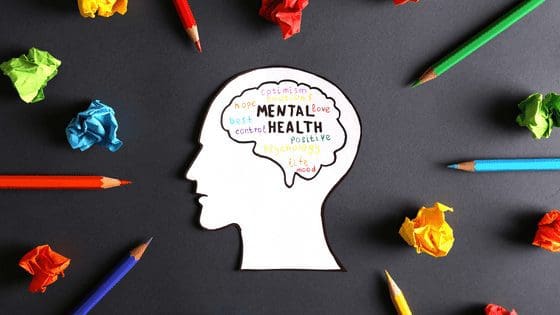Let’s face it. You’re busy. You have work to do, friends to hang out with, and family to see. But when it comes down to it, you must make time for yourself to have a happy and healthy life. It’s time we all started focusing on the one thing that really matters: balancing our work and personal lives. Here we explore what people consider a work-life balance and tips to help you lead a better work-life balance in 2022.
What is the meaning of a work-life balance?
The term ‘work-life balance’ refers to whether you are focusing healthily on your career and home life.
What a work-life balance means to one person could be very different to what it means to another. It’s possible for people’s views on what makes for a good “work-life balance” to change over time. Some people may focus more on work in the shorter term when starting their career or running a new business, while others might be much more focused on an equal balance that will enable them to travel or spend time with young children.
We’ve also seen a shift in what people considered a good work-life balance before the pandemic and what they now feel is the right balance for them and their families due to increased remote and flexible working.

What's the right work-life balance for me?
When considering the right work-life balance for you, the starting point is to ensure a ‘healthy’ balance.
Ask yourself these questions to help identify whether you have a healthy work-life balance:
- Am I sleeping properly?
- Do I have good eating habits?
- How often do I worry or think about work when I’m at home?
- Do I have time to see friends and family and hobbies?
If your workload affects any of the above, it indicates a need to evaluate your current circumstances, as you could be on your way to burnout!
If you’re happy that your basic needs are met, and there are no concerns regarding your mental and physical wellbeing, the next step is to review the following points:
- Where and how are you spending your time?
- If you stay on this course, what will you gain, and what may you have to sacrifice?
- Are you happy that the gains are worth the sacrifice when you compare the two?
This is a beneficial exercise to help clarify your current path, whether it is the right one for you now, and how long it will remain the correct path.
Unfortunately, we work with many executives that have strived to achieve a particular level, only to realise that they have lost focus on their personal lives. This doesn’t mean to say it’s one of the other. But if you are focused on all essential areas, it helps to stop you from getting side-tracked and allow other areas to go untended.
Work is a significant part of our lives, but it shouldn’t cost us our happiness and wellbeing.

Do different styles of working impact work-life balance?
The pandemic has caused a vast shift in how many of us work, with remote, flexible, and hybrid working all becoming more popular. We have also seen an increase in companies adopting a four-day working week.
Those who experienced remote working, especially flexible remote working, realise its benefits. When we discuss peoples’ experiences of flexible and remote working and ask what they valued the most, more time with the family consistently comes out on top. However, while people can spend more time at home, some have experienced great difficulty switching off. This results in people being with their family and friends more but not ‘present’ in the moment, impacting the quality of the time they spend together.
Some who work out of an office find that the commute helps transition from work to personal life. The time you spend communicating can also be used productively, for example, to read or listen to podcasts and audiobooks for personal development.
Regarding the four-day week, we have seen both pros and cons. Getting a full day back can significantly improve your work-life balance. However, if it results in your working longer days or being forced to have a day off that doesn’t suit your lifestyle, it may be detrimental in helping you achieve the work-life balance that’s right for you.
The importance of developing a work-life balance
We know the dangers of allowing work to take over our lives, and we are much more likely to suffer from mental health conditions or physical ailments such as heart disease. However, we work with professionals who regret having focused so heavily on work, costing them the opportunity to have a family, being detrimental to their marriage, or missing their children growing up. Unfortunately, time is something we can never get back.
8 strategies to help you improve your work-life balance
Here are our 8 strategies to improve your work-life balance for a healthier, happier you.
1. Gain clarity and stay focused
Know what you want out of life and ensure you are happy with the rewards and any sacrifices you may need to make. Check-in on your goals regularly to ensure you remain on the right path, making any necessary adjustments along the way.
2. Take time for yourself
Never feel guilty for taking the time to recharge your batteries. Getting a balance between work and life isn’t just about spending more time with friends and family. It’s crucial that you have some ‘You’ time when you can be completely selfish and solely focus on your own needs.
If you can’t sneak away for a day, or even half, build in a regular ‘happiness hour’. It’s incredible how much some ‘You’ time can reinvigorate you.
3. Stay social
Whether you are hybrid working, work in an office, or are self-employed, it’s crucial to socialise outside of work. In our digital world, we can get caught up in social media, WhatsApp and other online activities. But they are no substitute for face-to-face interactions. Get out there and have fun!
The additional benefit of making plans with people is you are more likely to stick to them. It’s much easier to neglect yourself and continue working into the night than to let someone down.

4. Incorporate exercise into your routine
Physical activity triggers your brain to release dopamine and serotonin, which not only feel good, they lower stress, anxiety and depression.
If time is an issue, consider shorter, more intense activities such as running rather than walking the dog. Get on the trampoline with the kids. This is great exercise, and why should they have all the fun?
Regular exercise also helps to improve sleep. So, even if you’re not getting a lot, exercise could help you get a deeper and more restful night’s sleep.
5. Don't bottle things up
If you’re feeling stressed or worried, don’t keep it inside. Talking to others about your worries can be helpful all by itself, as it allows you to get your feelings off your chest, which can help you process them.
If you’re concerned or starting to get overwhelmed, but you don’t want to talk to your friends and family, check to see if your company has an Employee Assistance Programme (EAP) or any Mental Health First Aiders you can speak with.
6. Unplug from digital
It’s far too easy to pick up your phone or laptop and think, ‘I’ll just….’ Then, before you know it, you’ve been working for an hour or two unintentionally.
Even if we don’t pick up our devices, having them in sight or seeing notifications popping up can prevent us from switching off. Once you’ve finished for the day, shut work phones and laptops out of sight. If you use your phone for work and personal, switch off notifications or temporarily mute work chats.
7. Block out work distractions
Use as many tools as possible to remove or block out distractions from the outside world. Switch off notifications on your phone and email. Consider putting a do not disturb sign on your door if you work from home, and the family has a knack of ‘popping in’ while you’re trying to work.
If you’re in an open-plan office and need to work on a complex piece of work, consider booking a meeting room for a couple of hours where you won’t be interrupted.
Blocking out distractions will ensure you are more productive and get through your work in a shorter amount of time.
8. Get an accountability partner
It’s not for anyone else to tell you the right work-life balance, but if you find it challenging to maintain the balance you want, get yourself an accountability partner. This could be a coach, mentor, friend, or partner. It doesn’t matter who, as long as they help steer you back in the right direction if you start to go down a rabbit hole.
If you’re struggling to achieve the right work-life balance get in touch to discover how coaching can help you get on track.
Published: 29th August 2022.




